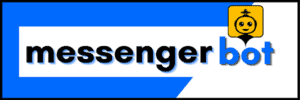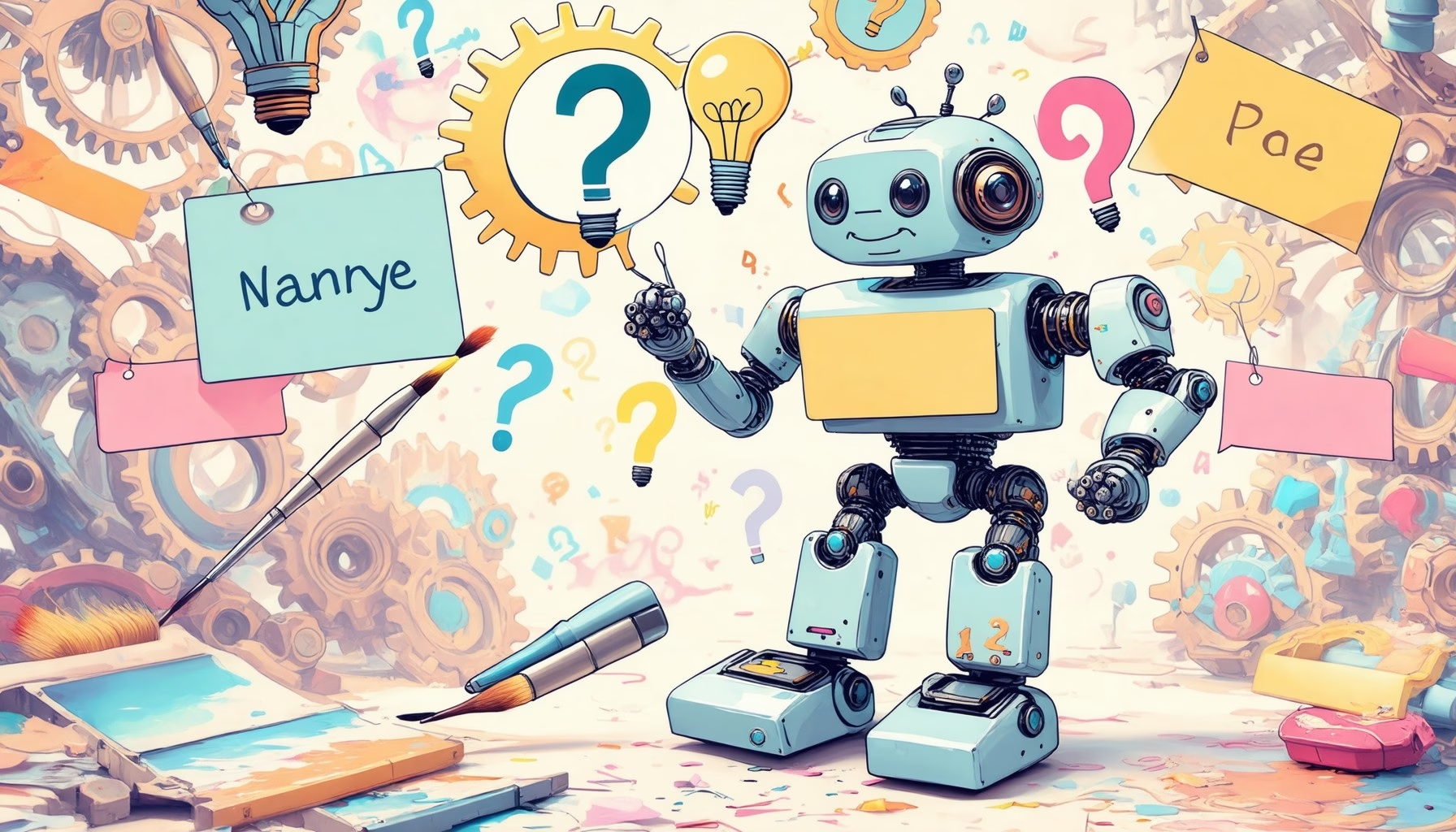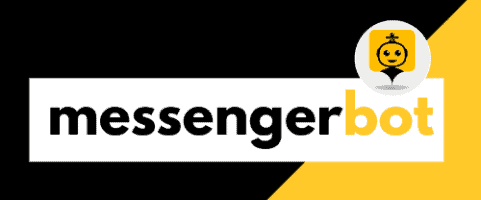Key Takeaways
- Maximize Engagement: Facebook bots enhance user interaction by providing instant responses and personalized experiences, significantly improving customer satisfaction.
- Streamline Customer Support: Utilizing Facebook chat bots for customer inquiries allows businesses to manage communications efficiently and reduce response times.
- Boost Lead Generation: Facebook bots engage users with targeted conversations, helping to collect valuable information for effective lead qualification.
- Facilitate Content Delivery: Bots can deliver personalized messages and promotional content directly to users, keeping them engaged and informed.
- Combat Bot Followers: Understanding the risks of bot followers can protect your brand’s reputation and ensure genuine engagement on your Facebook account.
- Identify Bot Behavior: Recognizing indicators of bot accounts can help maintain a more authentic social media experience and improve overall engagement strategies.
In the ever-evolving landscape of social media, understanding the role of technology is crucial for maximizing user engagement and enhancing communication. This article delves into the intriguing world of Facebook bots, exploring what they are and how they function within the platform. From identifying Facebook chat bots to understanding the nuances of Facebook Messenger bots, we will uncover the various ways these automated tools interact with users and impact your account. You will learn how to distinguish between human users and bots, the reasons behind bot followers, and the benefits businesses can reap from utilizing these digital assistants. Additionally, we will address common concerns, such as whether bot followers can harm your account and how to manage Facebook bots comments effectively. Join us as we navigate through these essential insights, empowering you to leverage Facebook bots to your advantage.
Understanding the Functions of Facebook Bots
Facebook bots, also known as chatbots, are automated programs designed to interact with users on the Facebook platform, primarily through Messenger. They serve various functions that enhance user experience and streamline communication. Here are some key roles of Facebook bots:
- Customer Support: Bots can provide instant responses to frequently asked questions, helping businesses manage customer inquiries efficiently. According to a study by HubSpot, 69% of consumers prefer chatbots for quick communication with brands.
- Lead Generation: Facebook bots can engage users in conversations that qualify leads by asking targeted questions and collecting information, which can be integrated into customer relationship management (CRM) systems.
- Personalized Recommendations: Utilizing machine learning algorithms, bots can analyze user preferences and behavior to offer tailored product suggestions, enhancing the shopping experience.
- Content Delivery: Bots can deliver news updates, promotional content, and personalized messages directly to users, keeping them engaged with the brand.
- Appointment Scheduling: Many businesses use bots to facilitate booking appointments, reducing the need for manual scheduling and improving operational efficiency.
- Surveys and Feedback: Bots can conduct surveys to gather customer feedback, providing valuable insights for businesses to improve their services.
Recent advancements in artificial intelligence have made Facebook bots more sophisticated, allowing for natural language processing (NLP) capabilities that enable them to understand and respond to user queries more effectively. According to a report by Gartner, by 2025, 75% of customer service interactions will be powered by AI, highlighting the growing importance of bots in digital communication.
The Role of Facebook Bots in User Engagement
Facebook bots play a crucial role in enhancing user engagement by providing interactive and personalized experiences. They can initiate conversations, respond to user inquiries, and maintain ongoing dialogues that keep users interested. This level of interaction not only fosters a sense of connection but also encourages users to return for more interactions.
Moreover, bots can analyze user behavior and preferences, allowing them to tailor responses and suggestions that resonate with individual users. This personalized approach significantly improves user satisfaction and loyalty. For businesses looking to optimize their engagement strategies, implementing a Facebook bot can be a game-changer.
For more insights on how to effectively utilize Facebook bots for user engagement, explore our Facebook Business Messenger Bot Insights.
What do Facebook bots do?
Understanding the Functions of Facebook Bots
Facebook bots serve as powerful tools designed to enhance user interaction and streamline communication. They automate responses, manage inquiries, and facilitate user engagement across platforms like Facebook Messenger. One of the core functionalities of a Facebook bot is its ability to provide automated responses. This means that when users send messages or comments, the bot can reply instantly, ensuring that no inquiry goes unanswered. This is particularly useful for businesses looking to maintain a high level of customer service without the need for constant human oversight.
Additionally, Facebook bots can create dynamic workflows that respond to specific user behaviors. For instance, if a user shows interest in a product, the bot can trigger a series of messages that guide them through the purchasing process. This level of automation not only improves user satisfaction but also enhances lead generation efforts. By utilizing engaging messaging strategies, businesses can effectively capture leads and convert them into customers.
For those interested in learning more about the capabilities of Facebook bots, I recommend checking out the comprehensive guide on [creating a Facebook Messenger bot](https://messengerbot.app/mastering-how-to-make-a-facebook-messenger-bot-a-comprehensive-guide-to-creating-automating-and-monetizing-your-chatbot/).
The Role of Facebook Bots in User Engagement
The role of Facebook bots in user engagement cannot be overstated. They are designed to enhance communication by providing timely and relevant responses to user inquiries. This is particularly important in today’s fast-paced digital environment, where users expect immediate answers. A well-implemented Facebook bot can significantly improve user experience by ensuring that interactions are seamless and efficient.
Moreover, Facebook bots can analyze user interactions to provide insights into engagement patterns. This data can help businesses refine their strategies and tailor their messaging to better meet customer needs. For example, if a bot notices that users frequently ask about a specific product, businesses can adjust their marketing efforts accordingly.
To explore how Facebook Messenger bots can enhance communication further, you can read about [what a Facebook Messenger bot is](https://messengerbot.app/what-is-a-facebook-messenger-bot-and-how-does-it-work-safely-in-your-conversations/).
Why are bots following me on Facebook?
Bots follow users on Facebook for several reasons, primarily related to social media strategies and automated interactions. Understanding these motivations can help you navigate your social media experience more effectively.
The Purpose Behind Bot Followers
Here are the key reasons why you might notice bots following you:
- Inflated Popularity: Many users employ bots to artificially boost their follower count and engagement metrics. This tactic can create an illusion of popularity, making profiles seem more appealing to potential real followers, brands, and advertisers. According to a study by Pew Research Center, a significant number of social media users have encountered fake accounts, highlighting the prevalence of this practice.
- Data Collection: Bots are often programmed to gather data from users’ profiles, including interests, interactions, and demographics. This information can be used for targeted advertising or market research. A report from the Digital Marketing Institute emphasizes that businesses utilize bots to analyze user behavior and preferences.
- Automated Engagement: Some bots are designed to engage with users automatically, liking posts or leaving comments to increase visibility. This can be part of a broader strategy to gain attention and attract genuine followers. Research from Social Media Examiner indicates that automated engagement can sometimes lead to higher interaction rates.
- Spamming and Scams: Unfortunately, some bots are created with malicious intent, aiming to spam users with advertisements or phishing attempts. The Federal Trade Commission (FTC) warns users to be cautious of accounts that seem suspicious or overly promotional.
- Messenger Bots: While not directly related to follower counts, Messenger Bots can interact with users through automated messages, providing customer service or information. These bots can follow users to facilitate communication and enhance user experience on the platform.
Understanding the presence of bots on your Facebook profile can help you manage your social media strategy more effectively. To maintain a genuine follower base, consider regularly reviewing your followers and reporting suspicious accounts.
Analyzing Bot Behavior on Facebook
To effectively analyze bot behavior on Facebook, consider the following indicators:
- Profile Activity: Bots often have minimal activity on their profiles. Look for accounts with few posts or interactions, as these may indicate automated accounts.
- Generic Content: If the content shared by a follower seems generic or overly promotional, it could be a sign of a bot. Genuine users typically share more personalized content.
- Rapid Follower Growth: If you notice a sudden influx of followers, especially those with suspicious profiles, it may suggest the use of bots to inflate numbers.
- Engagement Patterns: Bots often engage in repetitive patterns, such as liking or commenting on posts in a similar manner. Observing these patterns can help identify automated accounts.
By being aware of these behaviors, you can better manage your Facebook interactions and maintain a more authentic social media presence.
How to Tell if a Person is a Bot on Facebook
Identifying whether you’re chatting with a bot or a real person on Facebook can enhance your online interactions. Here are some effective strategies to spot a bot:
- Response Time: Bots typically respond instantly or within seconds, while human responses may take longer, especially if the conversation is complex.
- Repetitive Answers: If the responses seem scripted or repetitive, it’s likely you’re interacting with a bot. Bots often provide the same answers to similar questions.
- Lack of Personalization: Bots may fail to reference past interactions or provide personalized responses, which a human would likely do.
- Limited Understanding: If the conversation veers off the expected path and the responses become irrelevant or nonsensical, you might be dealing with a bot.
Tools for Facebook Bot Account Checker
To further assist in identifying bots, several tools can help analyze Facebook accounts:
- Botometer: This tool evaluates Twitter accounts but can provide insights into bot-like behavior that may also apply to Facebook.
- Facebook’s Own Tools: Facebook provides features to report suspicious accounts, which can help in identifying bots.
- Third-Party Services: Platforms like Brain Pod AI offer AI-driven solutions that can help analyze interactions and identify bot behavior.

How to Tell if a Person is a Bot on Facebook
Identifying whether a person is a bot on Facebook can be crucial for maintaining a genuine social media experience. Here are key indicators to help you determine if an account is automated:
- Unnatural Account Behavior: Look for sudden spikes in activity, such as an abrupt increase in likes or follows. Bots often engage in mass liking or following without any meaningful interaction.
- Disproportionate Follow Ratios: A common sign of a bot is an account that has a significantly high number of follows compared to its followers. For instance, if an account follows thousands but has only a handful of followers, it is likely a bot.
- Generic Profile Information: Bots typically have incomplete or generic profiles. Check for a lack of personal photos, vague bios, or default profile images, which are often indicators of automated accounts.
- Repetitive or Irrelevant Posts: If the account frequently shares the same content or posts that seem irrelevant to the context, it may be a bot. Genuine users usually share diverse and relevant content.
- Engagement Patterns: Bots often engage in patterns that seem unnatural, such as liking posts at odd hours or responding to comments with generic phrases. Authentic users tend to have more varied and contextually appropriate interactions.
- Limited Interaction with Friends: Bots usually have minimal interaction with their friends or followers. If you notice that an account rarely comments or engages in conversations, it might be automated.
- Use of Messenger Bots: While some bots are designed for legitimate purposes, such as customer service, they can also be misused. If a user frequently sends automated messages or spammy links via Messenger, it’s a red flag.
For more information on identifying bots and protecting your Facebook experience, consider consulting resources from cybersecurity experts or social media platforms.
Tools for Facebook Bot Account Checker
To effectively identify and manage potential bot accounts on Facebook, utilizing specialized tools can be beneficial. Here are some recommended options:
- Botometer: This tool analyzes Twitter accounts but can provide insights applicable to Facebook. It assesses the likelihood of an account being a bot based on its activity patterns.
- Facebook’s Built-in Tools: Facebook offers features that allow users to report suspicious accounts. Familiarizing yourself with these tools can help maintain a cleaner friend list.
- Social Media Management Platforms: Tools like Hootsuite or Buffer can help monitor engagement patterns and flag accounts that exhibit bot-like behavior.
- Manual Review: Regularly reviewing your friend list and interactions can help you spot any anomalies that may indicate bot activity.
By leveraging these tools and being vigilant about account behaviors, you can enhance your Facebook experience and reduce the influence of bots. For further insights on managing your social media presence, explore resources like the Brain Pod AI for advanced AI solutions in social media management.
Do Bot Followers Ruin Your Account?
Yes, bot followers can significantly harm your Facebook account. Here’s a detailed breakdown of the risks associated with having bot followers:
- Lack of Engagement: Bot followers, often referred to as “fake followers,” do not interact with your content. This lack of engagement can lead to a lower engagement rate, which is a critical metric for Facebook’s algorithm. Accounts with high engagement rates are more likely to be favored in the platform’s visibility.
- Impact on Brand Reputation: Having a large number of bot followers can damage your brand’s credibility. Authenticity is crucial in social media marketing; brands with fake followers may be perceived as less trustworthy. Consumers are more likely to engage with brands that demonstrate genuine interactions.
- Algorithm Penalties: Facebook’s algorithm is designed to promote accounts that foster genuine engagement. If your account is flagged for having a high percentage of bot followers, it may result in decreased visibility and reach. Accounts with suspicious follower counts may be penalized in terms of reach.
- Potential Account Suspension: In extreme cases, Facebook may suspend or ban accounts that are found to be using bots to inflate follower counts. The platform actively works to remove fake accounts, and if your account is associated with these bots, it could face serious consequences.
- Misleading Analytics: Bot followers skew your analytics, making it difficult to gauge the true performance of your content. This can lead to misguided marketing strategies and ineffective campaigns. Accurate data is essential for optimizing your social media efforts.
In conclusion, while bot followers may seem like an easy way to boost numbers, they ultimately do more harm than good. Focusing on organic growth through authentic engagement is the best practice for building a sustainable and reputable Facebook presence.
Strategies to Stop Bots Commenting on Facebook
To effectively manage and reduce the impact of bot comments on your Facebook account, consider implementing the following strategies:
- Adjust Privacy Settings: Review your privacy settings to limit who can comment on your posts. Restricting comments to friends or followers can help reduce bot interactions.
- Use Comment Moderation Tools: Leverage Facebook’s comment moderation features to filter out spammy or bot-like comments. You can set up keywords that trigger automatic hiding of comments that contain certain phrases.
- Report and Block Bots: Actively report and block accounts that you identify as bots. This helps Facebook take action against these accounts and can improve your account’s overall health.
- Engage Authentically: Foster genuine interactions with your audience. By encouraging real engagement, you can dilute the impact of bot comments and enhance your community’s authenticity.
By implementing these strategies, you can protect your Facebook account from the negative effects of bot followers and maintain a more engaged and authentic audience.
What is a Facebook Messenger Bot?
A Facebook Messenger Bot is an advanced automation tool designed to facilitate communication between businesses and users on the Facebook platform. By leveraging artificial intelligence, these bots can manage interactions, respond to inquiries, and provide information without the need for constant human oversight. This technology enhances user experience by delivering timely responses and engaging content, making it a vital asset for businesses looking to improve their customer service and engagement strategies.
Exploring the Definition of a Facebook Chat Bot
A Facebook Chat Bot is a specific type of Messenger Bot that operates within the Facebook Messenger app. It is programmed to simulate human conversation, allowing users to interact with it as they would with a real person. These bots can handle various tasks, such as answering FAQs, providing product recommendations, and even processing orders. The primary goal is to streamline communication and enhance user satisfaction by providing instant responses to user queries.
Differences Between Facebook Chat Bots and Messenger Bots
While the terms “Facebook Chat Bot” and “Messenger Bot” are often used interchangeably, there are subtle differences. A Facebook Chat Bot specifically refers to bots that engage users within the Messenger platform, focusing on conversational interactions. In contrast, Messenger Bots can encompass a broader range of functionalities, including automated responses across various channels, such as websites and SMS. Understanding these distinctions helps businesses choose the right type of bot for their specific needs.





